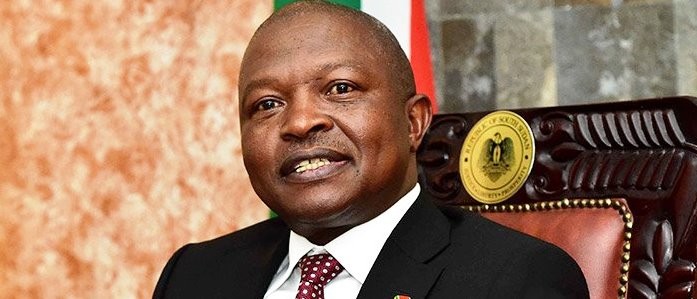Government and opposition negotiators ended three days of meetings Wednesday without breaking a deadlock over the number of states.
South Africa’s Deputy President David Mabuza, who attended the talks in Juba, told reporters this evening that the meetings were "productive" and both sides agreed to meet again after 10 days.
He further said all parties to the peace deal exchanged views on the number of states and their boundaries, but couldn’t break the deadlock.
“It took us sometime and we thought we shouldn’t rush into that point where there is consensus. But I can say that we are almost on the verge of finding one another,” he said.
He added,” We are going to finalise the issue of the number of states in our next meeting which will happen in the next 10 days”.
Mabuza, who is also the South African envoy to South Sudan, pointed out that South Sudanese leaders have recommitted themselves to resolve the outstanding issues and speak language of peace.
Mr. Mabuza struck a positive note on the final day of the talks, saying there was some "common ground" between the parties, who were trying to overcome the impasse on the number of states.
“I can say we are only left with two views, and with these two views, we have given them enough opportunity to go and discuss about it, consult their leaders and come back. Our next meeting will be the last,” he stressed.
The talks on the number of states and their boundaries in Juba this week were the first since the Independent Boundaries Commission (IBC) in July failed to produce any agreement on how many states South Sudan should have.
The IBC was tasked to settle the dispute over the number of states in the country.
The body consists of 15 members nominated among the parties, supported by five experts nominated by the member states of the African Union High Level Ad Hoc Committee on South Sudan (South Africa, Algeria, Chad, Nigeria and Rwanda).
On November 7, President Salva Kiir and opposition leader Riek Machar agreed to give themselves another 100 days beyond the November 12 deadline to form a unity government.
President Salva Kiir, opposition leader Riek Machar and a handful of other groups signed the peace deal in September 2018. However the parties have failed to create a unified army and determine the number of states since the deal was signed.




